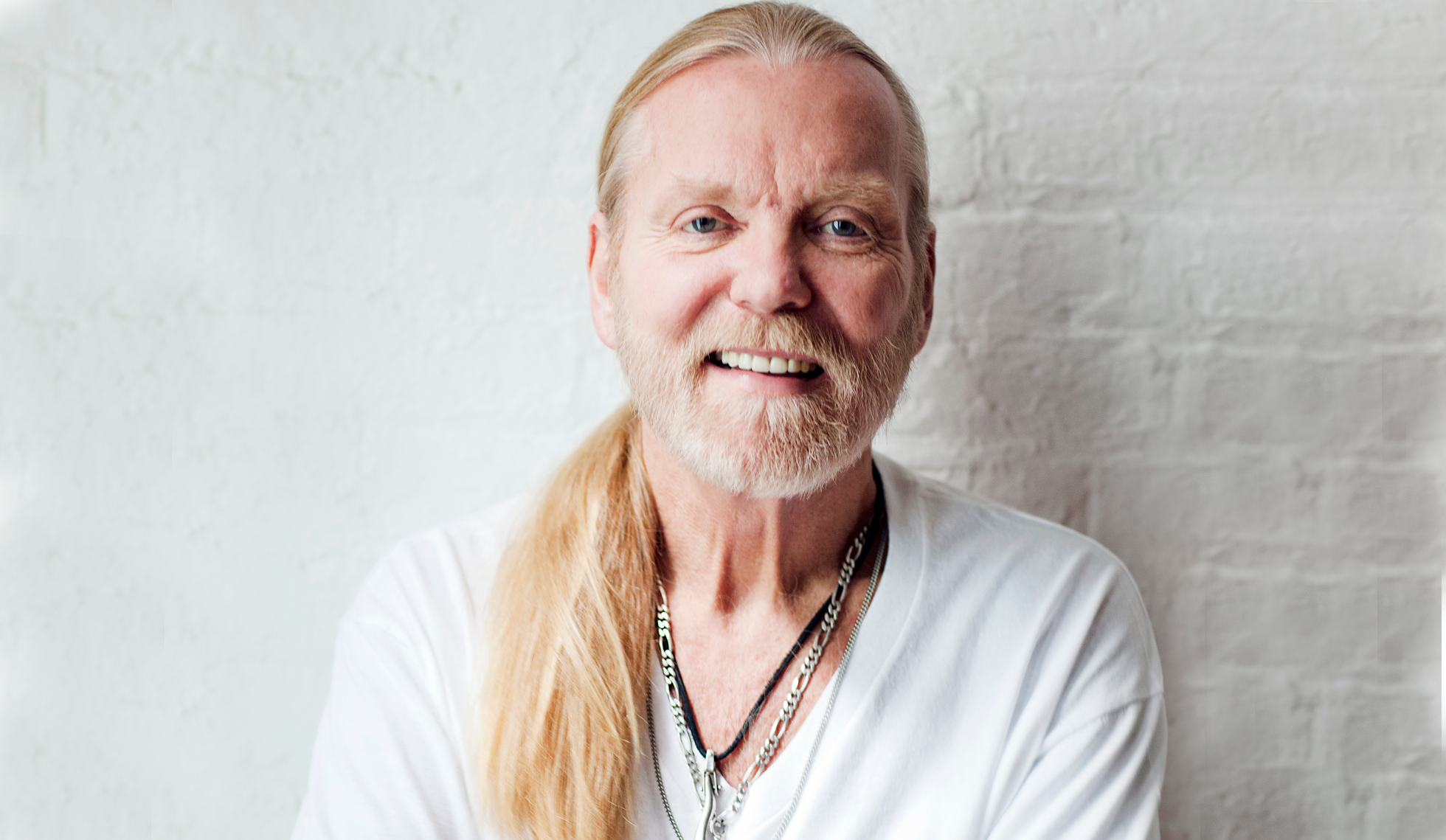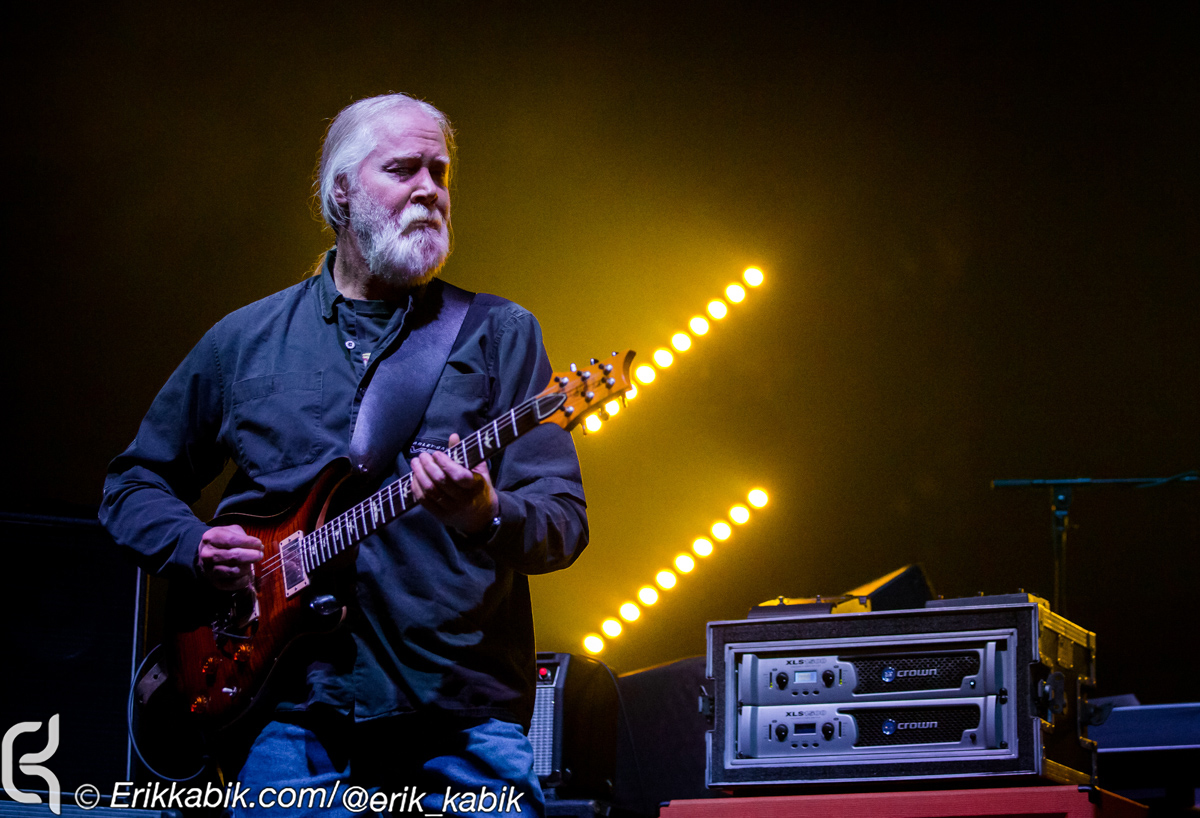All My Friends Part II: Marc Quiñones, Jimmy Herring and Chuck Leavell Remember Gregg Allman
 Gregg Allman’s bandmates and confidantes reflect on his life and music. Read Part I featuring Warren Haynes, Derek Trucks and Oteil Burbridge here.
Gregg Allman’s bandmates and confidantes reflect on his life and music. Read Part I featuring Warren Haynes, Derek Trucks and Oteil Burbridge here.
Marc Quiñones
What are you memories of the first time you saw Gregg perform?
Until I met him, I had never seen him. I didn’t even know who the Allman Brothers were when I joined them. When I initially met Butch Trucks [backstage after Quiñones had performed with Spyro Gyra], they said, “Butch Trucks from the Allman Brothers wants to meet you.” I said, “I don’t know who Butch Trucks is and I don’t know who the Allman Brothers are.” I couldn’t put any of it together until I started playing with them. We played “Midnight Rider” and “Whipping Post,” and then I was like, “Oh, I know these songs.”
How did your impressions of him change as you really came to know the music?
I come from the Latin realm of music, and we have a lot of great singers that have a great feel in their interpretations. Gregg is one of those singers that has the ability to change how a song sounds when he opens his mouth.
After all the years working with him, I really came to appreciate what a great singer and interpreter he was, or is— I’m not going to speak of him in the past tense because he’s going to continue to affect a lot of people for years to come. His legend is going to live on forever.
When he passed away and we went to Macon for his service, it was unbelievable. You would have thought that a head of state had died with the amount of people who came out to pay their respects and did so respectfully. There was no craziness whatsoever; it was just amazing to see how many people he touched in his lifetime, myself included.
It was amazing to see the police escort and the streets lined from the funeral home all the way to Rose Hill. People were sitting on the hillside silently. Nobody was ever out of line—it was amazing to see the respect they gave Gregg. It really touched me. It was unbelievable to see the people come out. Even Dickey came out—through the years with the turmoil and all, I was really happy to see him there paying his respects to one of his brothers.
Musically and politically, they were trailblazers because they were long-haired hippies with a black man in the band when both of those things were taboo in the South. And because of the legacy Gregg created in the Allman Brothers Band and his solo career—he had two successful careers—that music is not going away. That music is timeless.
Jimmy Herring
While Gregg’s voice will endure for generations, can you talk a little about him as an organ player?
To me, his organ playing and his voice are one and the same—the way they complement each other. Watch him play “Don’t Keep Me Wonderin’” and watch how he moves. Watch his body language when he’s not singing, in between the stanzas of the verses. Watch how he accentuates what he’s singing with the way he plays the organ. They go together like peas and carrots.
It’s hard to believe an instrument as old as the Hammond can still be such an individual thing, but the drawbar settings are very personal, so it’s capable of sounding different in the hands of whoever sits down at it. And Gregg was famous for his Hammond drawbar settings. 
What did you take away from your time with Gregg?
He was exactly what I always wanted him to be. He was never a disappointment. I had him on a pedestal and still do, of course. It’s not fair to put people on pedestals, but I did. I mean, he’s Gregg Allman. When I was growing up, he was royalty. He is royalty. Never once did I get let down for having expectations that high. He was a Southern gentleman. He inspired me to want to be better.
Another thing about him that I really respected was that he always wanted to play. He didn’t care if he wasn’t in a huge, sold-out arena—he would go play smaller places if he needed to. I love that about him.
Not just anybody can be so unique in what they do. Sure, you can find people who might excel at something. It’s one thing to be a guitar player who can play notes, but he carved out his own thing in music. Man, that is so hard to do. I was never let down by that. It’s so hard to be yourself to the point where you just can’t help it. Being himself really resonated with millions of people, which is a gift. It was an amazing trip the time I was there. I wouldn’t trade it for anything. He was a prince of a guy, super cool and very open to us musically.
Chuck Leavell
You worked with Gregg Allman on his solo debut Laid Back. For Gregg, what void in the Allman Brothers did that album fill?
After Duane died, the band went out without any replacement as a five-piece. That put a lot of pressure on all of them, especially Dickey. But, no doubt, Gregg had to carry a large part of the burden. It had to be a very tough experience for all of them, but they all pulled together and did an admirable job. They came back to Macon physically and emotionally drained, and they needed a break. This is when Gregg decided to do a solo record—something that would be a departure from the “norm” and allow him a more personal creative experience.
He had some songs that he felt didn’t quite fit the ABB, “Multicolored Lady” and “Queen of Hearts.” He also had in mind a different version of “Midnight Rider,” and he and Johnny Sandlin had chosen some tunes from other writers, like “These Days” from his friend Jackson Browne and “All My Friends” by Scott Boyer. When you look at these songs, they all are softer in texture than what the ABB had been doing. It gave Gregg a different direction to go in, and I think it helped him to heal from Duane’s tragic death. There was a strong feeling of camaraderie among all of us that were working on the record. We wanted to help Gregg, wanted to give him a good musical and personal experience. He felt that and responded to it. It gave him something to be happy about.
How did the Brothers approach carving out room for both a keyboardist and organist in a group traditionally known as a twin guitar band?
Perhaps a month or so into recording Laid Back, there were some jam sessions that went down after hours. This involved the rest of the ABB— sometimes not all at once—and other musicians. There were times when it was all the ABB with me in the mix. We played some of the songs the Allmans were known for, like “Statesboro Blues” and “In Memory of Elizabeth Reed,” but also just picked a key and started playing. I remember we called one of those the “Bo Jam” after Berry Oakley. This went on for two or three weeks—things began to take shape and they all saw me as a way to go in a different direction with the band.
So as we were winding up Gregg’s record, I got a call from the Capricorn offices saying that Phil Walden wanted to see me. I really didn’t know what it was about. I thought I had done something to piss him off. But when I arrived and went into his office, the band was there. We had some small talk for a minute, and then Phil said something like, “Well, the guys feel like there is something special going on and want to know if you would be interested in joining the ABB.” I didn’t really expect that, but it was a very pleasant surprise for a 20-year-old piano player that was trying to make a decent career.
Soon after that, we began to record Brothers and Sisters. Gregg and Berry were especially nice to me during that period, helping me feel at home and comfortable. Having just done Gregg’s record, I felt pretty close to him and he treated me somewhat like a younger brother, as did Berry. I was in heaven working on that record.



















